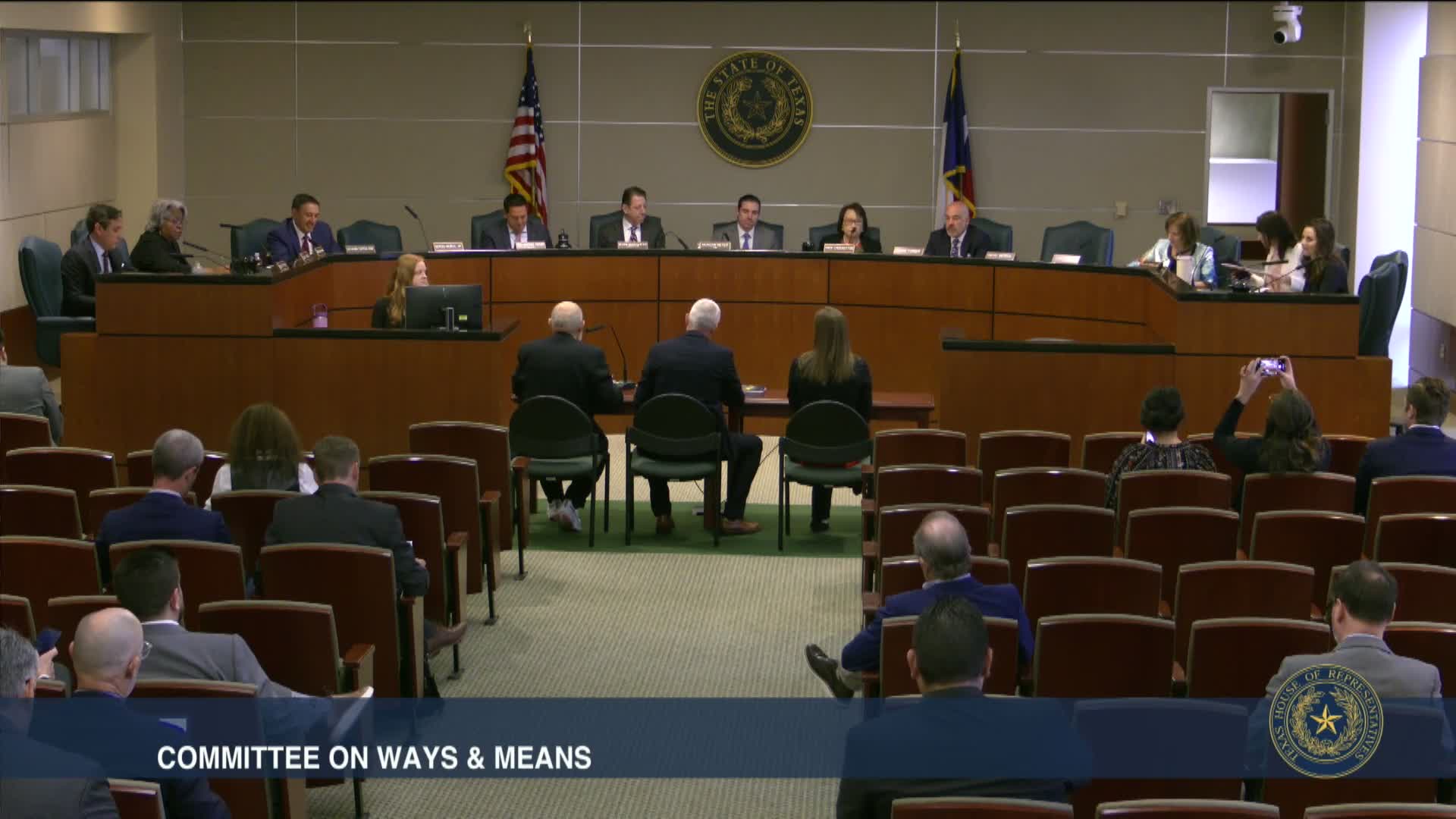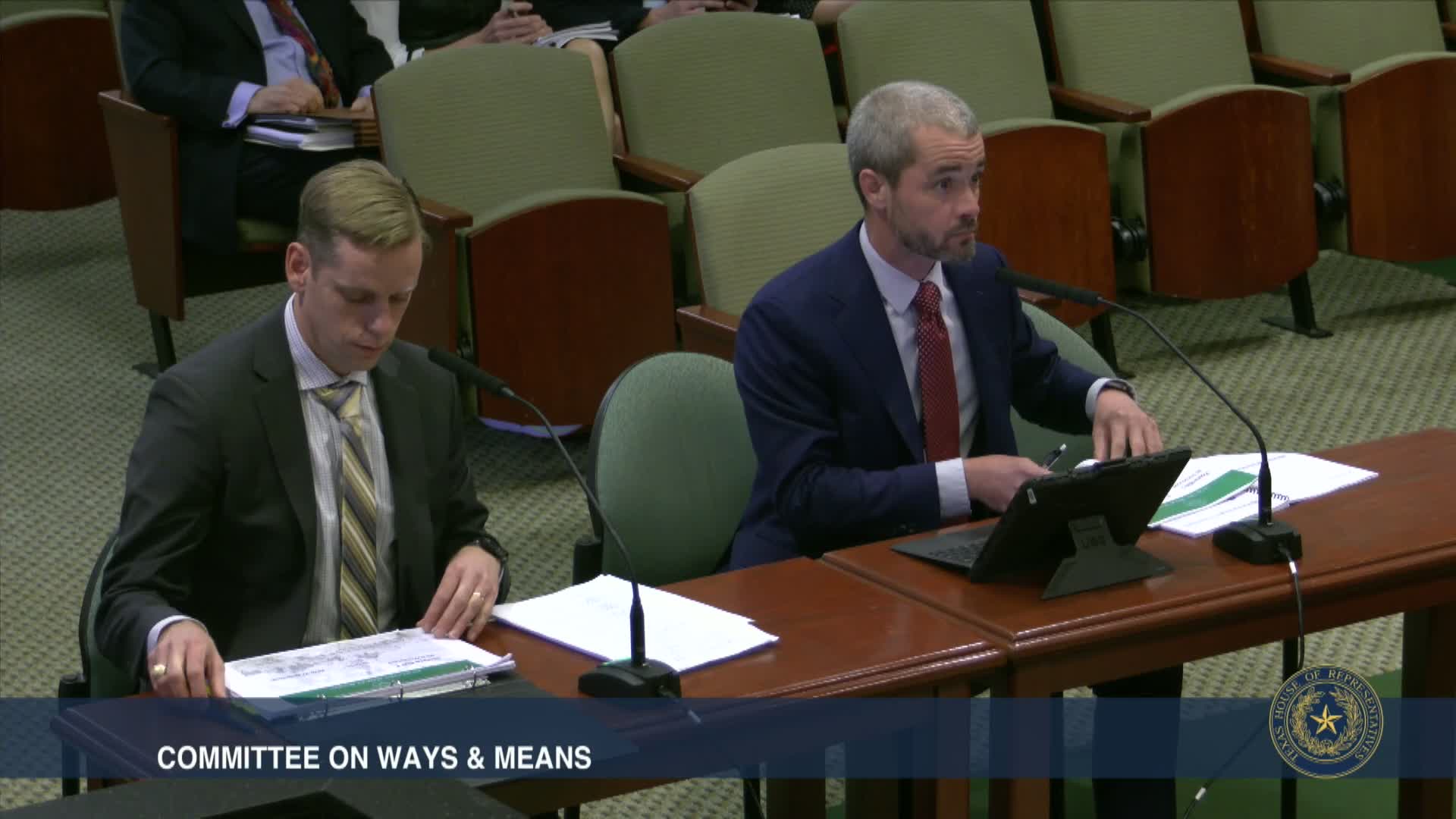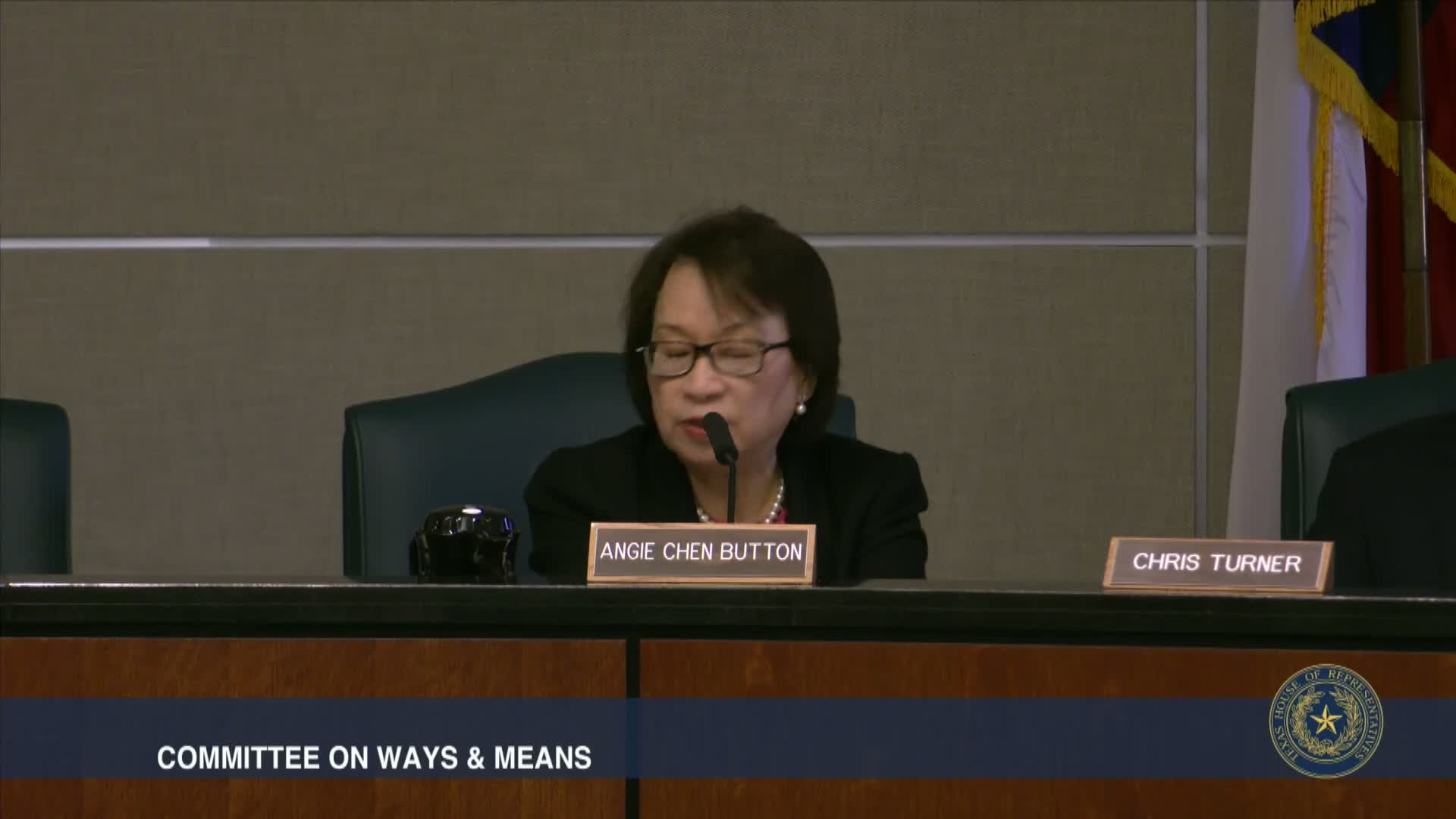Article not found
This article is no longer available. But don't worry—we've gathered other articles that discuss the same topic.

Comptroller: Texas has $194.6 billion available for 2026–27; oil severance taxes will boost general revenue due to ESF cap

Policy groups urge varied approaches to property‑tax relief; disagreements center on equity, renters and local controls

Legislative Budget Board previews HB1: modest all‑funds increase, $51 billion in property tax relief included

